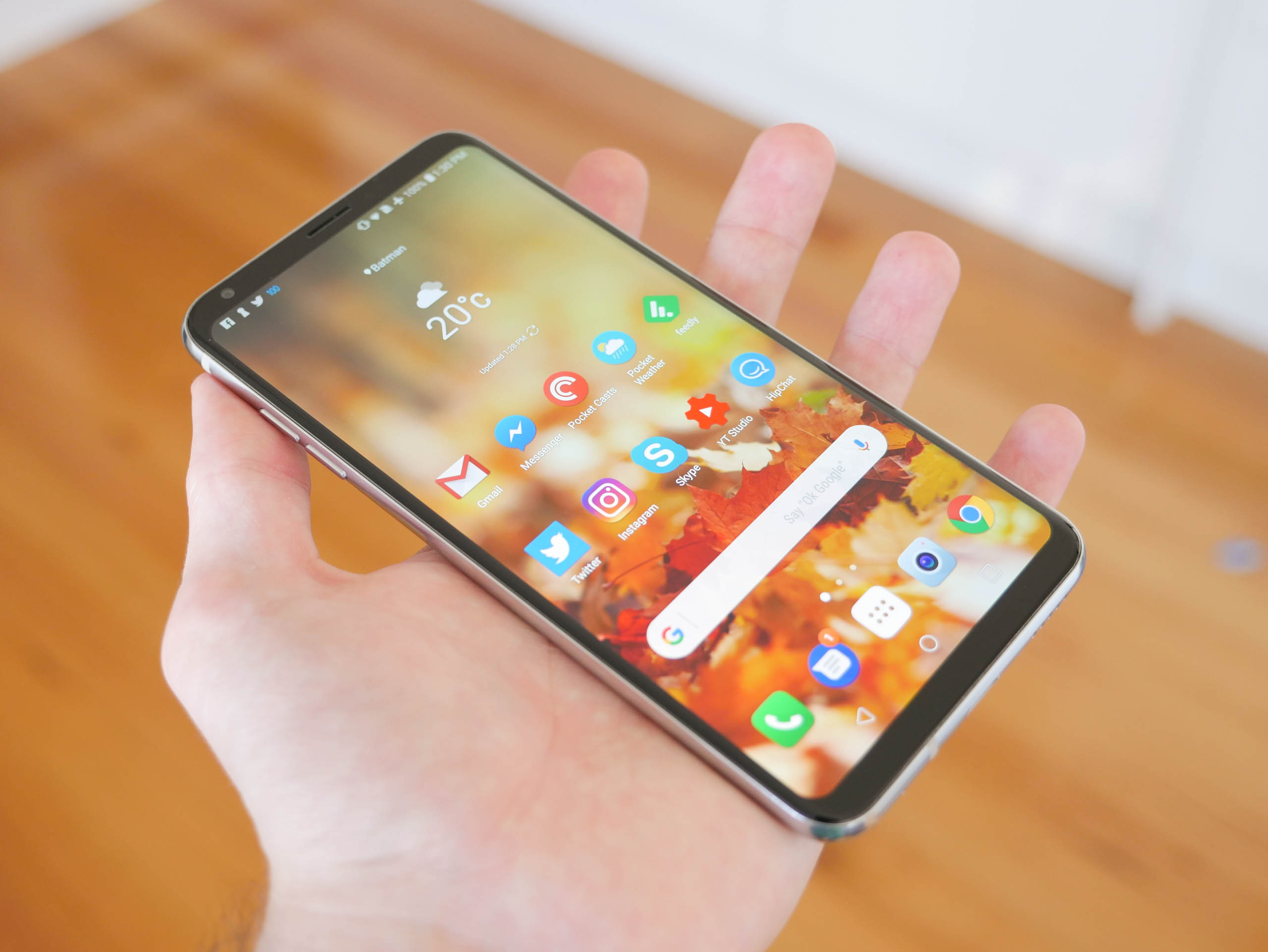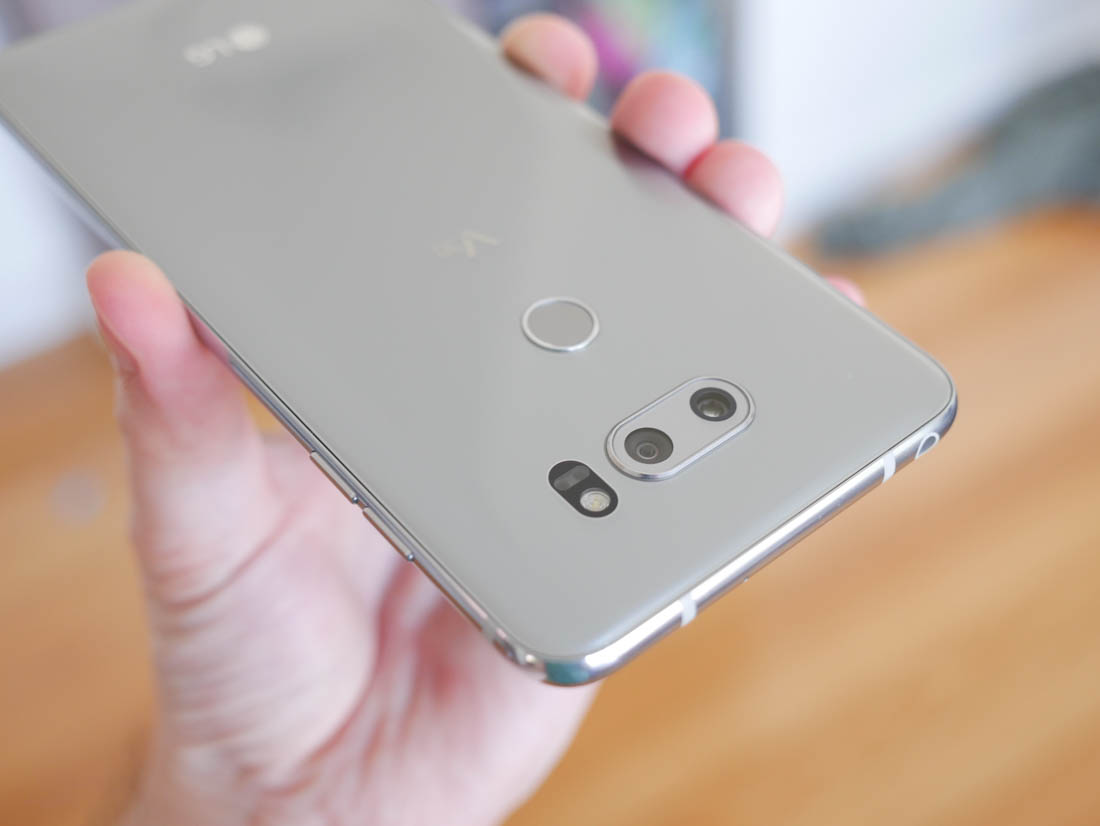A Great Big Phone, Faces Tough Competition
There have been a lot of 'almost great' smartphone releases in 2017, and the LG V30 is another such example. There's a lot of great, if not excellent things about this phone, but at the same time there are a couple of issues that, in the face of strong competition, are hard to ignore.
Starting with the good stuff, the V30 is LG's most attractive design yet. The display is enormous and occupies essentially all the front panel, without awkward notches. The rest of the build is premium, using a mix of metal and glass. It's comfortable to hold, if a bit slippery, but it looks great from every angle. Plus you get features like a headphone jack, water resistance and microSD expansion all in the one package.
The dual rear camera setup produces excellent photos, with fantastic dynamic range, vibrant colors and decent performance in poor lighting. The wide-angle camera is a genuinely useful addition, and it takes photos that are just as good as the main sensor. LG complements great photo quality with a range of top-notch features in their camera app, including manual modes for both stills and videos. Camera quality isn't quite as good as the Pixel 2 XL, and images do lack fine detail, but it gets pretty close to the best phone camera on the market.
Performance is an interesting story with the V30. You get a Snapdragon 835 inside, but due to aggressive CPU clocking it doesn't quite match the performance of other S835 handsets in intensive CPU workloads. This isn't a huge deal for most users, though the phone did feel a tad slower than my Pixel 2 XL during everyday usage.
On a definitively positive note, graphics performance is unaffected, which is great when you have such a huge, high-resolution display. Storage performance is decent as well, and with features like Gigabit LTE inside, the V30 doesn't miss out on any current-generation hardware.
Battery life from the V30 is respectable, with above average results in most of our battery benchmarks. It doesn't last quite as long as the Pixel 2 XL, but that's not surprising as the Pixel 2 XL does have a larger battery. I don't think anyone will be upset with the results the V30 puts up, though, as it comfortably lasts through a day's worth of use.
One of the bigger issues with the LG V30 is its display, which isn't great. LG's p-OLED technology has terrible viewing angles, and uniformity is more like a last-gen display than a modern OLED. The display is very oversaturated, so it looks pretty good straight-on, though this can be reined in through the display settings. It is better than the Pixel 2 XL display, but both phones share many of the same fundamental hardware limitations due to LG's OLED tech.
LG's software just isn't very good either. Compared to current Android 8.0 Oreo on the Pixel 2, the skinned Android 7.1 used here feels clunky and dated. The OS is cluttered with feature bloat and bloatware apps, which lead to a plethora of pop-up dialogs as the OS attempts to explain everything to you. The visual style, while much better than a few years ago, still just doesn't gel all that well with Android's main design goals. LG needs to spend some time cleaning up their skin and giving it a coat of polish to bring it up to the modern standards of Android.
The LG V30 retails for $800, which is on the upper end of phone pricing but cheaper than a lot of its competitors. The Google Pixel 2 XL is $850, while the Note 8 starts at $930 and the iPhone X is an exorbitant $1,000. For what you get, it seems like a fair deal if a smaller device absolutely isn't what you're after.
If you look past some of its flaws, the V30 is a good handset that for some users will be worth buying. But LG wanted this phone to be the best on the market, and I'm just not sure it offers more than the Pixel 2 XL or the Note 8.
Shopping Shortcuts:
score
Pros: Beautiful design with an expansive, small-bezel display. Packed with features including Gigabit LTE, high-quality DAC, water resistance, microSD expansion and headphone jack. Excellent rear cameras.
Cons: LG's p-OLED display technology needs work. Unimpressive, clunky and bloated software.




